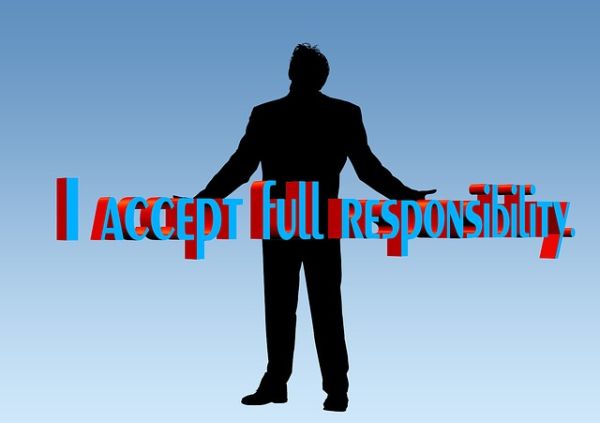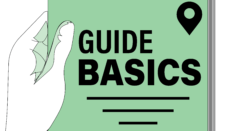It is difficult to talk about such varied elements from one human being to another such as feelings, values, morals, tastes and the topic that we will deal with today in particular: ethics.

As human beings, we cannot give up delving into the studies of concepts as complex as this can be, despite the fact that, with almost 100% certainty, we will never reach a total consensus among all citizens of the world.
We could point to religion as originating from these concepts of morality and ethics as a kind of dogma – call it Christianity, Buddhism, Judaism, etc. – or rules that had to be met because it was – or is – the right thing to do as a believing person. Later, a philosopher who changed the history of philosophy, I. Kant, would take up this concept and resize it.
For this reason, in this article we will study how the concept of ethics has progressed over time and how it has caused an intense debate over the years, even influencing branches and concepts that are much closer to our reality, such as bioethics.
What does ethics need to be able to carry out the study of morality?
It is quite difficult to be able to explain this without falling into expressing a personal/ common point of view in which, in the end, many of the authors who try to explain elements of ethics or ethics itself also fall.
Therefore, let’s start little by little, starting with an error of Kant’s that is totally debatable and that many agree and many disagree:
- When we talk about this principle of universality and morality, we are faced with a serious problem: Kant does not contemplate that, from the point of view of a person whose purpose is to do evil, what is universal and moral can be good.
That is, does a terrorist know that what he is doing is bad? Or the same is a moral action for him as a member of a gang to try to justify his action through an ideological complex or religion. Obviously, for the vast majority of us -if not all- what he does is an immoral action and therefore reprehensible… And for him/her, is it like that?
So the first thing that ethics must understand is that morality is greatly influenced by the context of the people and what we can call the ideological baggage that the person has behind it, since this determines whether an action is good or not.
Another example of this is the famous law of the Amurabi Code that says “an eye for an eye, a tooth for a tooth”, there are those who agree with it, but, from the outset, the Christian-Catholic population (and Christians in general) should not since Jesus of Nazareth tells us that we must “turn the other cheek”. Or pray.
This means that ethics can never be a uniform line of study and does not in fact pretend to be. Ethics must find those actions that transcend Westernity or religions that unite us with human beings:
- In other words, ethics must understand that each part of the world has its own rules and regulations, but there are aspects that do not vary from one place to another and that is why it should be thrown away.
Likewise, Kant spoke to us about good actions, which represented the morality of the individual. Now, what happens if a good action, that is, a moral action, is not fulfilled? Let’s see, suppose you want to help a blind man to cross the street, which is a good deed because its goal is for the blind man to reach the other side of the sidewalk safely (under Kantian logic, importance of goodwill).
- But: what if the blind man falls because of you? Does your action go from being moral and good to being bad and immoral? According to Kantian ethics, no, since your good will did not have that specific purpose. The biggest problem with reasoning in this way is that we are trusting in the goodwill of people, which may be impossible.
What is ethics today?
We know that Kantian ethics was fundamentally based on the fact that it was an action that met two criteria: one, universality, that is, that it could be applied to all people without any distinction, and the other, morality -which goes hand in hand with good will-, that is, that an action had a good end (even if this was not fulfilled).
Now, to get closer to the current concept of ethics, we have decided to use two dictionaries and an encyclopedia at the forefront as a referential source, that is, they are constantly reviewing everything that happens.
At first, we have consulted the Dictionary of the Royal Spanish Academy, which says the following: “Set of moral norms that govern the conduct of the person in any area of life.”
In addition to this, we have consulted the Oxford dictionary, where ethics is defined as follows: “Philosophical discipline that studies good and evil and their relationships with morality and human behavior.”
Wikipedia, for its part, defines ethics as the following: “Or moral philosophy is the branch of philosophy that studies the right or wrong of human behavior, morality, virtue, duty, happiness and good living.”
There is something that we must clarify first: ethics is the same as morality?
It is necessary to ask this question because we will be constantly dancing about these two terms that seem to be the same, but are actually two very similar elements that we differentiate by the following:
- Morals are the actions that we carry out day by day. That is to say, in our head we have a series of moral norms that we comply with -or not- day by day and that can also become a reflection of a cultural background from which we come, because it is logical that each one has their own concept of good and bad.
- Ethics is the process of study and/or reflection on morality. That is to say, it is as if we ourselves, after watching a kind of video of the day we had, had stopped to see if what we have done is moral -or not- according to our own code. Clearly, this should always be compared with more people because always (evoking Kantian ideas) within our houses we are the best people since there is no comparison with anyone or anything.
In other words, we currently have two basic concepts from which we start: morality, which are the actions and norms that we follow as human beings, and then ethics, which is the science that is in charge of studying all this series of behaviors.
I want to analyze my moral: What should I do?
It is normal to want to know more about ourselves and through morality and ethics we can find many interesting aspects of our personality that perhaps we had not even noticed until now.
Let us see, therefore, step by step how to analyze ourselves morally:
- Undoubtedly, the first step is to fill yourself with information by reading books on ethics (which are very fashionable lately) and morality, as well as reading the classic works of philosophical authors who have looked at this problem for a long time, such as Kant.
- Going now to praxis, start to remember or record yourself (you can do whatever you want) to analyze your -moral- actions under an impartial context, that is, in such a way that you can capture all possible points of view.
- Subsequently, you will proceed to carry out a process called conceptual ethics: that is, you contrast what you do with what you should do according to norms or rules that you have established as correct.
- We can once again use Christian morality as an example, which has a series of rules and characteristics of its own that its believers must take into consideration when taking actions against others or against themselves. In a few words: review how many things you meet according to what you should meet and issue ratings from there.
- But what if I consider that some of that conceptual ethics is wrong? Let’s take the example in which, according to a certain code of rules that you use, a certain place says that stealing is not bad and you, according to your own morality, it is. Can you refute it? Yes, for this there is the next step.
- This is what is called ethics of the axiological type: it is the ethics that a certain person creates for himself at his own discretion. That is, it is the one that practically all of us have.
- Mostly, human beings do not fully agree with a particular theory or ideology, that is, even Christians have their own differences, as well as Jews and Muslims. Each one interprets everything in a different way, there may be similarities, yes, but a 100% equal thought is rare.
- As you can see, it is very interesting to analyze yourself and your own behavior from a broader perspective, so we invite you to take a greater interest in this area of ethics.
A world with ethics, is it possible?: Tips
Currently there is a fairly broad debate that takes place in a branch of ethics, bioethics: a science that is in charge of studying whether or not certain actions carried out by biology -and other sciences- or that have to do with with certain modern dilemmas like the following:
If you find someone bleeding to death on the street, what should you do? Leave him there, help him and take him to the hospital or just call an ambulance? According to bioethics, you should stay there and call an ambulance, since you should not get directly involved in a job that should be carried out by expert organizations and people.
Likewise, we have brought you a perfect exercise for you and a group of friends who are interested in the subject of ethics:
Subway dilemma: Imagine that you are in a subway station and the subway is coming towards the station, at that moment you realize that there are 4 children on the tracks that you can only save if you throw the person next to them you what would you do?
For us, the answer to whether the world can have a common ethic or not is the following: it is a matter of sitting down and talking about it, but all the nations of the world without leaving anyone aside, respecting all the cultures that exist. It is complicated, but a great consensus can be reached that at least helps us to be more united as citizens of the world.
Finally, we hope that this article has been very helpful and has aroused your interest in this very interesting and important topic for everyone. Human behavior must be, above all, an example to follow for its humanity and tolerance.
